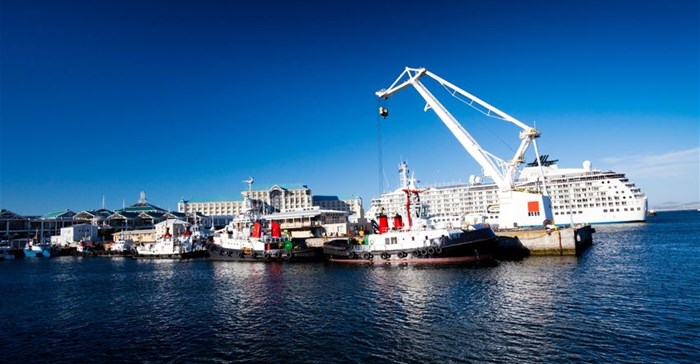
Top stories






More news


Marketing & Media
Ads are coming to AI. Does that really have to be such a bad thing?














John Duncan, Senior Manager: Marine Programme at the WWF, said: "Earth's oceans produce 70% to 80% of its oxygen, absorb more than half of all man-made CO2, and regulate our climate. 90% of world trade is carried by sea, seafood makes up 17% of global protein intake, and up to 12% of global livelihoods are associated with fisheries and aquaculture. Any discussion of growing an ocean economy - in SA or elsewhere - must recognise that a healthy, sustainable marine ecosystem is required to underpin it."
South Africa's commercial fishing industry supports 27,000 direct jobs and employs 100,000 people in fishing related enterprises, while its deep-sea trawling industry generates R4bn in annual revenue. Ravens said: "The local fishing industry is more than 100 years old. It is also globally recognised for its sustainable approaches and could continue to sustain us in this way in perpetuity, provided fish stocks continue to be properly managed and the fragile marine ecosystems in our exclusive economic zone (EEZ) are not destroyed by short-termist thinking and destructive practices."
Ravens was referring to the rising threat of seabed mining in SA's EEZ following the Department of Mineral Resource's granting of a third prospecting right for marine phosphate mining to a commercial company in 2014. He explained: "The prospecting areas are concentrated in the Western Cape marine environment which is the backbone of SA's fishing industry. Together, it totals approximately 10% of SA's EEZ and it is cause for alarm that it overlaps with fishing grounds as well as with crucial nursery and spawning areas critical to maintaining healthy fish stocks."
According to Jonty Jankovich-Besan, Managing Director of Irvin & Johnson and Chairman of the Responsible Fisheries Alliance (RFA), the Alliance is advocating for the safeguarding sensitive offshore benthic areas for this reason, as well as assuming an ecosystems approach to fisheries management - as endorsed by the WWF - and working to ensure that SA's over-arching marine policy framework sets the scene for responsible fisheries practice. The RFA is also a leading member of the Safeguard Our Seabed Coalition, which is calling on government for a moratorium on seabed mining. A constant focus is maintained on driving engagement and collaboration with scientists (for informed decision making), industry, and government - also between government departments.
In describing the potential economic contribution of oil and gas to the SA economy, John Smelcer, Head of Oil & Gas at Webber Wentzel, said: "Centres of opportunity include upstream exploration; importing liquefied natural gas (LNG) from international markets; importing gas from neighbouring countries; and the development of a services sector, including potentially that of rig repair out of the Port of Saldanha Bay. Success will require adapting SA's mining skills set to our nascent oil & gas industry, and getting the regulatory regime right across the value chain."
The regulatory environment associated with South Africa's ocean economy is complex and cumbersome - not least because so many different government departments, legislative requirements, and objectives are involved. These include:
Ravens concluded: "Business and non-governmental agencies are making excellent progress and we encourage our colleagues in the public sector to join our work directed at utilising the blue economy responsibly. The opposing objectives of the various departments need to be acknowledged, if not immediately reconciled and careful thought given to the fact that no general policy framework exists to govern the competing sectors and objectives. Collaboration will be the currency of South Africa's Ocean Economy and we have a rare opportunity to pioneer a uniquely South African model for its responsible commercial exploration to the socio-economic benefit of all."